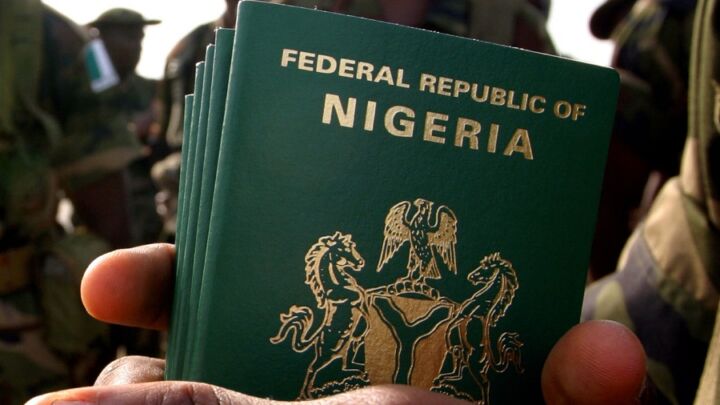The Nigerian passport has climbed to the 88th position in the 2025 Henley Passport Index rankings — its most favourable global standing in over a decade. The recent improvement reflects modest but steady gains in visa-free access enjoyed by Nigerian passport holders, offering more international mobility than at any point since 2014.
According to the index, Nigerian passport holders now have visa-free or visa-on-arrival access to approximately 70 countries, a milestone attributed partly to enhanced diplomatic relations, strengthened passport security features, and concerted international lobbying. Analysts say this represents a modest expanded value compared to just 55 accessible destinations as reported several years ago.

Passport industry experts consider this shift significant, noting that improved mobility enables opportunities for travel, commerce, education, and tourism. “While Nigeria still ranks in the lower half globally, this upward trend signals progress in how the world perceives the country’s travel document integrity and bilateral relations,” said a policy analyst familiar with the data.
The 2025 ranking marks the highest position Nigeria has achieved in the past 11 years, surpassing its previous peak at 95th place. It underscores gradual breakthroughs in regional arrangements and targeted negotiations with countries that have adjusted their visa regimes in favour of Nigerian citizens.
To build upon this momentum, experts emphasize the importance of continued embassy and consular engagement. They recommend Nigeria leverage diaspora networks, engage key partners, and pursue reciprocal visa agreements to further expand access. Enhanced passport security—through biometric upgrades, anti-fraud measures, and international compliance standards—was also cited as critical to sustaining upward mobility.
Despite the improvement, Nigeria still trails regional peers such as Ghana and Kenya, whose passports currently offer visa-free or visa-on-arrival access to between 90 and 100 destinations and typically rank within the top 70 globally. Observers view the Nigerian rank of 88th as an invitation to intensify diplomatic and economic engagement with visa-holding nations.
In terms of policy impact, improved passport strength is seen as consequential for the nation’s global image. With countries more willing to accept Nigerian travelers for tourism, business entry, or short-term visits, it could stimulate outbound tourism, attract foreign direct investment, and strengthen cultural exchange. It may also provide relief to diaspora Nigerians and students who often face restrictive visa regimes.
Stakeholders believe that the position can be further enhanced through improvements in national security databases, cross-border intelligence sharing, and transparent issuance systems. Combining these reforms with active visa negotiation strategies—especially in Europe, Asia, and the Americas—can increase destination access without compromising security.
Domestic experts say the rising passport ranking also aligns with growing demand for travel documentation. Renewed interest in international study, business travel, and personal tourism has pushed passport application volumes to new highs. Meanwhile, the Passport Service has responded by digitising application processes, expanding e-passport enrollment centers, and improving turnaround times.
Critics, however, caution that challenges remain. Issues such as passport issuance delays, corruption allegations, and inconsistent consular services abroad affect users’ perception. These institutional gaps, they note, could undermine strides made in diplomatic access unless addressed with urgency.
Nevertheless, for millions of Nigerians, the improved passport ranking offers tangible benefit. As visa regimes remain a significant barrier to global mobility for African citizens, the climb to 88th in the Henley Index provides token of progress—suggesting that strategic diplomacy, security enhancements, and policy reform can gradually unlock greater access for Nigerian travelers worldwide.
With sustained effort and improved bilateral engagement, industry watchers believe Nigeria can continue ascending the ranking. In the meantime, this year’s outcome represents a welcome milestone—transforming Nigeria’s passport from a liability into a slowly improving asset that reflects both national reform and evolving international partnerships.
Support InfoStride News' Credible Journalism: Only credible journalism can guarantee a fair, accountable and transparent society, including democracy and government. It involves a lot of efforts and money. We need your support. Click here to Donate
